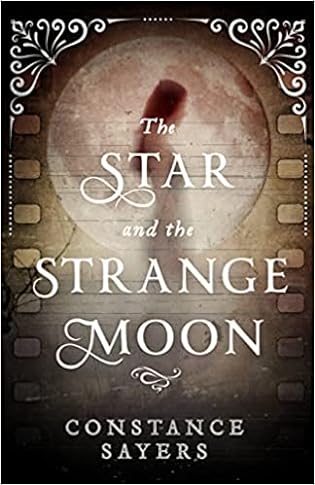 The Star and the Strange Moon by Constance Sayers
The Star and the Strange Moon by Constance Sayers Format: eARC
Source: supplied by publisher via Edelweiss
Formats available: hardcover, paperback, ebook, audiobook
Genres: historical fantasy, historical fiction, magical realism
Pages: 480
Published by Redhook on November 14, 2023
Purchasing Info: Author's Website, Publisher's Website, Amazon, Barnes & Noble, Kobo, Bookshop.org, Better World Books
Goodreads
From the author of A Witch in Time comes a haunting tale of ambition, obsession, and the eternal mystery and magic of film.
1968: Actress Gemma Turner once dreamed of stardom. Unfortunately, she’s on the cusp of slipping into obscurity. When she’s offered the lead in a radical new horror film, Gemma believes her luck has finally changed. But L’Etrange Lune’s set is not what she expected. The director is eccentric, and the script doesn’t make sense.
Gemma is determined to make this work. It’s her last chance to achieve her dream—but that dream is about to derail her life. One night, between the shadows of an alleyway, Gemma disappears on set and is never seen again. Yet, Gemma is still alive. She’s been transported into the film and the script—and the monsters within it—are coming to life. She must play her role perfectly if she hopes to survive.
2015: Gemma Turner’s disappearance is one of film history’s greatest mysteries—one that’s haunted film student Christopher Kent ever since he saw his first screening of L’Etrange Lune. The screenings only happen once a decade and each time there is new, impossible footage of Gemma long after she vanished. Desperate to discover the truth, Christopher risks losing himself. He’ll have to outrun the cursed legacy of the film—or become trapped by it forever.
My Review:
The Star and the Strange Moon is a story about hunger, greed, obsession, the power of movies to make magic and, surprisingly, the power of magic to make movies.
This timeslip story has two beginnings, as timeslip stories often do. At first, neither the reader nor the characters have any clue what one will have to do with the other – which is what fuels the obsession and powers the whole journey, both magical and mundane.
In 1986, a woman sees a photograph on a wall and pretty much loses her damn mind. Not that she hasn’t been heading that direction for quite some time, after nearly two decades of brief fortune, lost fame, failed hopes, and entirely too much sex and drugs and, as it turns out, not nearly enough rock and roll.
Her son, all of ten years old, has been the adult in their nomadic existence for seemingly all of his life, taking care of his mother as she drives them from one brief, often catastrophic singing gig to another, making sure she doesn’t kill herself with booze or drugs and talking her down from whatever figurative ledge she’s climbed up to this time.
But something about that photograph on the wall rips away his mother’s last grasp on sanity or reality or normalcy or all of the above in a way that both changes and makes Christopher Kent’s young life – even if, at age ten – he has no idea what who the woman in that photograph was or what any of it means.
The perspective then switches to the woman in the photograph, Gemma Turner, back in 1968, when she was a formerly up and coming actress and the current ‘old lady’ for a rock singer on the cusp of either greatness or being thrown out of his own band. Gemma wants out and away, so she takes the only acting job offered, to star in a horror movie for a French New Wave director who may be a genius director but has no clue about the conventions of the horror genre he plans to both break and break into.
One night, in the middle of filming L’Etrange Lune in a tiny French village, Gemma Turner disappears in the middle of a shoot – literally in the middle of a shot while the camera is recording it all. She wakes up in what appears to be a real-life version of the set of the movie, complete with its ‘strange moon’, in what seems to be 1878, in the person of the character she was portraying.
A character who is soon to be drained to death by a vampire. Unless, somehow, she can change the script.
Meanwhile, back in the so-called real world, her disappearance turns into a mystery that swallows the life of everyone the movie or the woman ever touched. Including, eventually and inevitably, the life of one Christopher Kent, who has no idea who Gemma Turner was or what she might possibly have ever done to his mother.
It will become Christopher’s obsession – and his life’s journey – to find the answer to ALL the mysteries that have grown up around Gemma Turner’s disappearance. It’s a discovery that will break him, make him, and enthrall him to the very end.
And the reader right along with him.
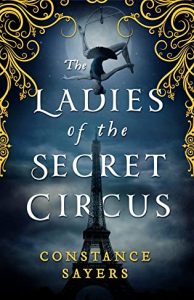 Escape Rating A-: I picked this up because I adored the author’s earlier book, The Ladies of the Secret Circus, with its blend of history, mystery and magic, and The Star and the Strange Moon looked like it was in the same vein.
Escape Rating A-: I picked this up because I adored the author’s earlier book, The Ladies of the Secret Circus, with its blend of history, mystery and magic, and The Star and the Strange Moon looked like it was in the same vein.
Which turned out to be true a bit more literally than I imagined, adding to the mystery of the story and my compulsion to finish it because there were bits that started to sound just a bit more familiar than I expected.
They are not the same story, although they do have similarities in their blending of forgotten history, secret realities, hidden magic and family obsessions. Nor do you need to read one to enjoy the other.
But both stories have the same origin. Or at least the same originator, the demon prince Althacazur and his endless and frequently appalling attempts to keep his eternity from being boring. Althacazur turns out to be the ‘man’ behind the curtain, rather like the Wizard of Oz, only Althacazur is a real magical being with all too real and horrific powers.
I want to say he’s not important – and he’s not important to what makes this story compulsively readable and so much fun. So even though the events are all his fault, he’s not all that important in the grand scheme of things, as contradictory as that seems.
What makes this story work is its combination of Christopher’s obsession to learn what the mysteriously missing Gemma Turner has to do with the sad progress of his mother’s life, set against Gemma’s story of taking control of her own destiny in a way that would not have been possible in the time and place to which she was born.
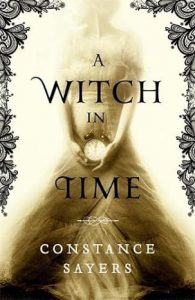 Christopher’s story is a story about hunting down clues, investigating theories, and giving over his own life in the present to solve a mystery in the past. Gemma’s story is about learning to make lemons out of lemonade and accepting that even if she can’t go home again, she can make a home where she is.
Christopher’s story is a story about hunting down clues, investigating theories, and giving over his own life in the present to solve a mystery in the past. Gemma’s story is about learning to make lemons out of lemonade and accepting that even if she can’t go home again, she can make a home where she is.
That Christopher’s solution to the mystery takes him down a road that runs more than a bit parallel to Outlander isn’t exactly a surprise by the time he gets there. But it does make for a fitting and delightful end to a lovely twisty turny story.
Which now has me more than a bit curious about the author’s first book, A Witch in Time, and whether Althacazur has been entertaining himself with humans even more than we’ve seen in The Ladies of the Secret Circus and The Star and the Strange Moon. I’ll have to find out while I wait for the author’s next book to magically – or demonically – appear!

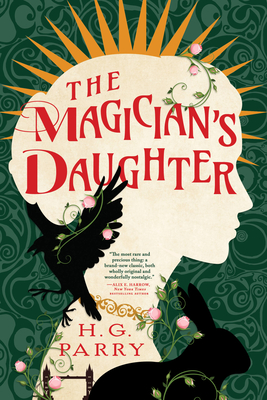 The Magician's Daughter by
The Magician's Daughter by 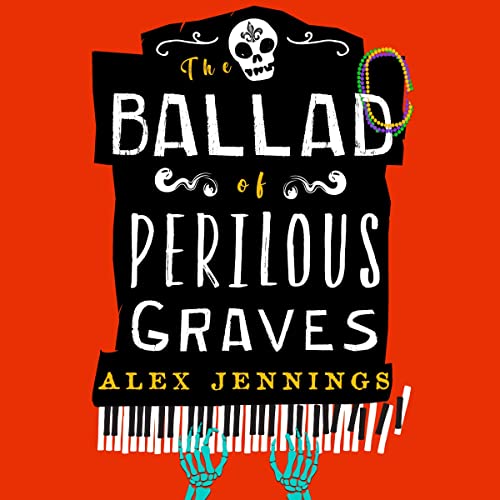 The Ballad of Perilous Graves by
The Ballad of Perilous Graves by 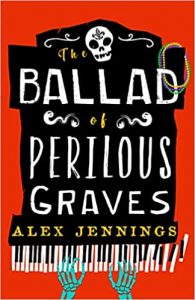 Escape Rating A-: I am a sucker for stories about New Orleans so I was all set to love The Ballad of Perilous Graves. Which in the end I did, although it took awhile to get me there. This is one of those books where the audiobook, as read by Gralen Bryant Banks, carried me over to the point where the story got its hooks into me and didn’t let go.
Escape Rating A-: I am a sucker for stories about New Orleans so I was all set to love The Ballad of Perilous Graves. Which in the end I did, although it took awhile to get me there. This is one of those books where the audiobook, as read by Gralen Bryant Banks, carried me over to the point where the story got its hooks into me and didn’t let go.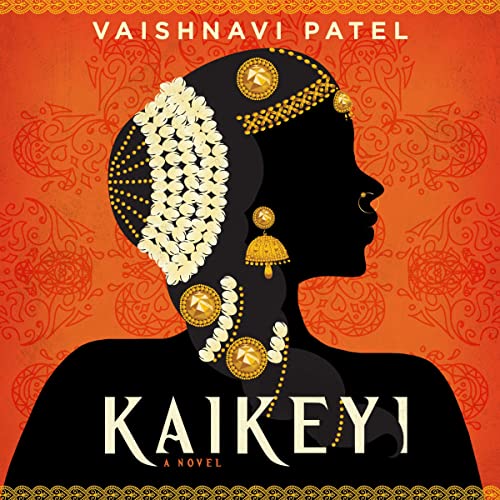 Kaikeyi by
Kaikeyi by 
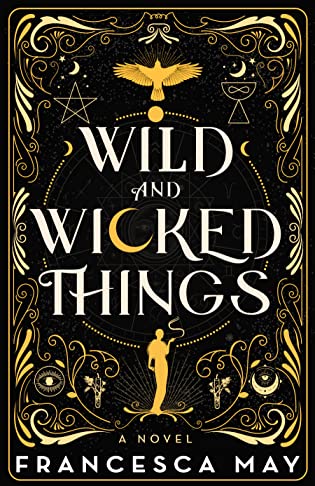 Wild and Wicked Things by
Wild and Wicked Things by 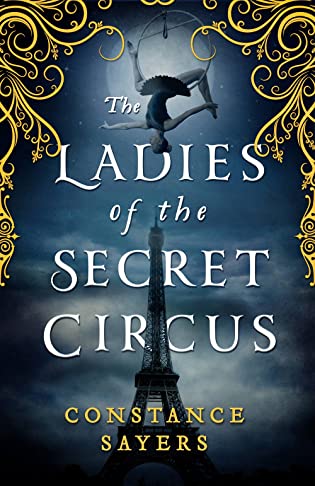 The Ladies of the Secret Circus by
The Ladies of the Secret Circus by